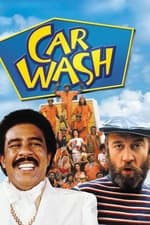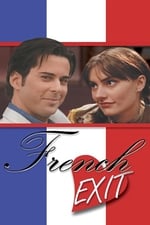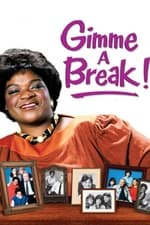Información personal
Conocido por Interpretación
Créditos conocidos 15
Sexo Femenino
Fecha de nacimiento 30 de noviembre de 1953
Fecha de defunción 11 de abril de 2006 (52 años)
Lugar de nacimiento Oakland, California, USA
También conocido como
- June Antoinette Pointer
- The Pointer Sisters
- The Pointers
Puntuación del contenido
100
¡Sí! ¡Buena pinta!
Iniciar sesión para informar de un problema
Biografía
June Antoinette Pointer (November 30, 1953 – April 11, 2006) was an American singer, best known as the youngest of the founding members of the vocal group The Pointer Sisters.
Born the youngest of six children to minister parents Reverend Elton and Sarah Pointer, June shared a love of singing with her sisters. In 1969, she and sister Bonnie founded The Pointers – A Pair. The duo sang at numerous clubs, then became a trio later that year when sister Anita quit her job as a secretary to join them. The group officially changed its name to The Pointer Sisters. The trio signed a record deal with Atlantic Records and released a few singles, none of which made a substantial impact on the music charts. In 1972, sister Ruth joined the group, making it a quartet. The sisters then signed with Blue Thumb Records, and their career began to take off.
Releasing their self-titled debut album in 1973, the Pointer Sisters found immediate fame with hits such as "Yes We Can Can" and "Wang Dang Doodle." Subsequent albums boasted top-charting songs such as "Fairytale," "How Long (Betcha Got a Chick on the Side)" and "You Gotta Believe." June left the group in November 1975 due to health problems as she was advised to retire due to extreme mental and physical exhaustion; Bonnie Pointer exited from the group to forge a solo career in 1977.
Upon June's return, the remaining sisters found huge success, reaching the Top 10 in early 1979 with a cover of Bruce Springsteen's "Fire"; that began a string of hits which included "Happiness," "He's So Shy" (1980), "Slow Hand" (1981), "American Music," "Should I Do It" and "I'm So Excited." In 1983, the group released what would be their biggest album to date, Break Out. It included the Top 10 hits "Automatic"; "Jump (For My Love)"; a re-release of "I'm So Excited", which became a bigger hit than when originally released in 1982; and "Neutron Dance." Subsequent albums spawned hits such as "Dare Me," "Freedom" and "Goldmine." (Pointer sang lead vocals on several of the group's top singles, including "Happiness," "He's So Shy", "Jump (For My Love)", "Baby Come And Get It" and "Dare Me.")
Eventually, June ventured into a solo career while staying with the Pointer Sisters; she released the Baby Sister album in 1983 (it scored a modest hit with "Ready for Some Action", #28 R&B) and a self-titled effort in 1989 (its charting single was "Tight On Time (Fit U In), #70 R&B)." June also performed the song "Little Boy Sweet" for the 1983 film National Lampoon's Vacation. In 1987, she scored a top 5 pop single with Bruce Willis with a cover of the Staples Singers' "Respect Yourself." She also gained notoriety for posing for Playboy magazine in 1985. In September 1994, the Pointer Sisters received a star on the Hollywood Walk of Fame. ...
Source: Article "June Pointer" from Wikipedia in English, licensed under CC-BY-SA 3.0.
June Antoinette Pointer (November 30, 1953 – April 11, 2006) was an American singer, best known as the youngest of the founding members of the vocal group The Pointer Sisters.
Born the youngest of six children to minister parents Reverend Elton and Sarah Pointer, June shared a love of singing with her sisters. In 1969, she and sister Bonnie founded The Pointers – A Pair. The duo sang at numerous clubs, then became a trio later that year when sister Anita quit her job as a secretary to join them. The group officially changed its name to The Pointer Sisters. The trio signed a record deal with Atlantic Records and released a few singles, none of which made a substantial impact on the music charts. In 1972, sister Ruth joined the group, making it a quartet. The sisters then signed with Blue Thumb Records, and their career began to take off.
Releasing their self-titled debut album in 1973, the Pointer Sisters found immediate fame with hits such as "Yes We Can Can" and "Wang Dang Doodle." Subsequent albums boasted top-charting songs such as "Fairytale," "How Long (Betcha Got a Chick on the Side)" and "You Gotta Believe." June left the group in November 1975 due to health problems as she was advised to retire due to extreme mental and physical exhaustion; Bonnie Pointer exited from the group to forge a solo career in 1977.
Upon June's return, the remaining sisters found huge success, reaching the Top 10 in early 1979 with a cover of Bruce Springsteen's "Fire"; that began a string of hits which included "Happiness," "He's So Shy" (1980), "Slow Hand" (1981), "American Music," "Should I Do It" and "I'm So Excited." In 1983, the group released what would be their biggest album to date, Break Out. It included the Top 10 hits "Automatic"; "Jump (For My Love)"; a re-release of "I'm So Excited", which became a bigger hit than when originally released in 1982; and "Neutron Dance." Subsequent albums spawned hits such as "Dare Me," "Freedom" and "Goldmine." (Pointer sang lead vocals on several of the group's top singles, including "Happiness," "He's So Shy", "Jump (For My Love)", "Baby Come And Get It" and "Dare Me.")
Eventually, June ventured into a solo career while staying with the Pointer Sisters; she released the Baby Sister album in 1983 (it scored a modest hit with "Ready for Some Action", #28 R&B) and a self-titled effort in 1989 (its charting single was "Tight On Time (Fit U In), #70 R&B)." June also performed the song "Little Boy Sweet" for the 1983 film National Lampoon's Vacation. In 1987, she scored a top 5 pop single with Bruce Willis with a cover of the Staples Singers' "Respect Yourself." She also gained notoriety for posing for Playboy magazine in 1985. In September 1994, the Pointer Sisters received a star on the Hollywood Walk of Fame. ...
Source: Article "June Pointer" from Wikipedia in English, licensed under CC-BY-SA 3.0.
Interpretación
|
|||||||||
|
|||||||||
|
|||||||||
|
|||||||||
|
|||||||||
|
|||||||||
|
|||||||||
|
|||||||||
|
|||||||||
|
|||||||||
|
|||||||||
|







